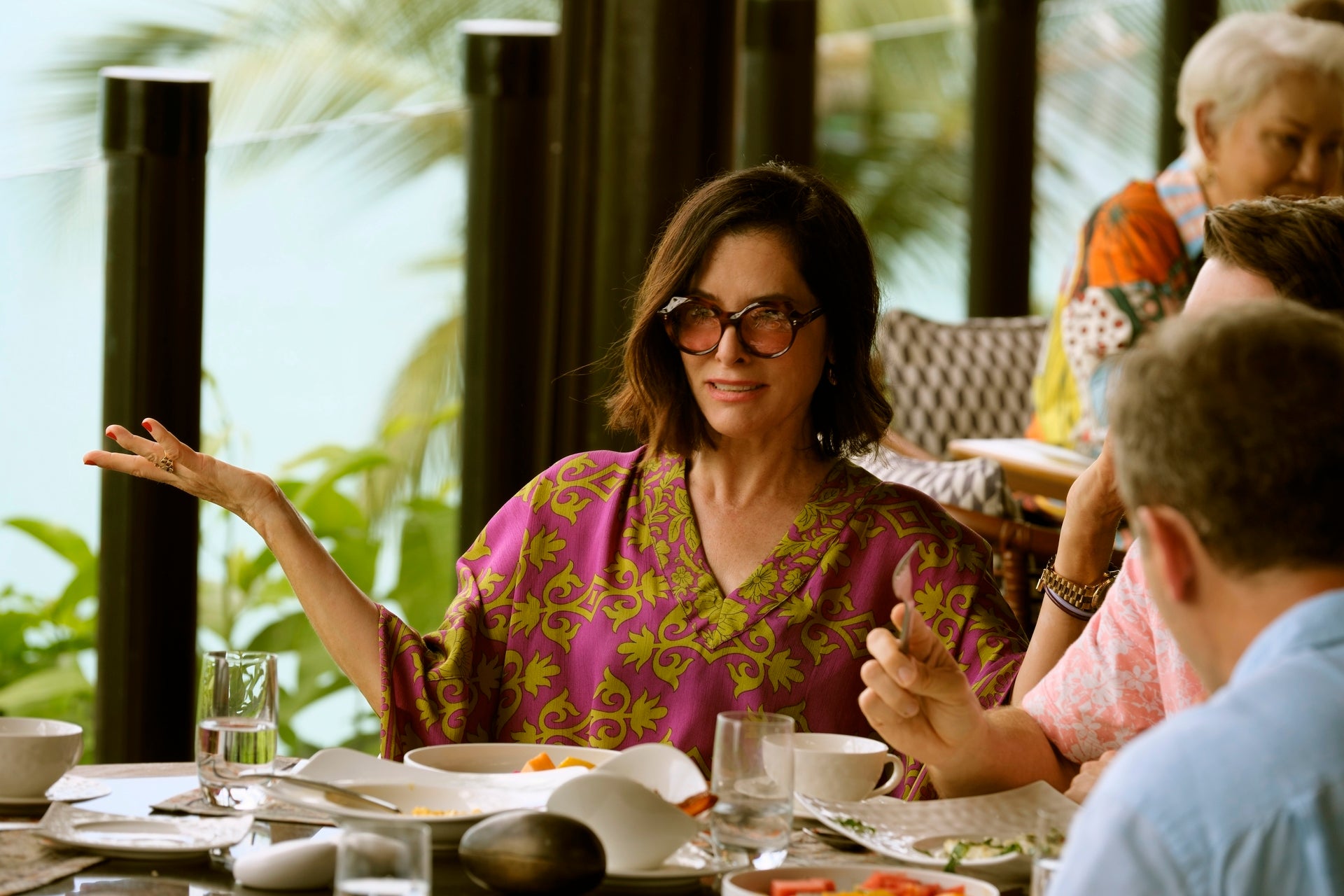The White Lotus creator Mike White has shared his insight into one particular scene that fans thought would have dire consequences for certain characters.
*Warning — Major spoilers for ‘The White Lotus’ season three finale ahead*
Following the violent season three finale, several viewers were left frustrated to see that an earlier run-in between Parker Posey’s Victoria Ratliff and Leslie Bibb’s Kate Bohr had no major ramifications.
Early on in the second episode, titled “Special Treatment,” as Kate is walking to breakfast, she spots Victoria, whom she recognizes from a mutual friend’s baby shower. While a bubbly Kate eagerly tries to connect with Victoria, the mother of three acts dismissive and standoffish.
The frosty encounter left fans to ponder its deeper meaning. Ahead of the finale, some fans wondered if the pair’s mutual friend would reveal Victoria’s husband’s (Jason Isaacs) financial troubles to Kate, who would then inform Victoria.
However, the Ratliffs are in the dark about Jim’s (Isaacs) ruin until the very end when it’s implied that he tells them as they leave the resort.

White has since explained that the awkward brunch encounter — while a red herring — wasn’t for nothing. Instead, it was intended to shed light on Victoria’s character and those of her family members.
“The idea of Victoria as the mother, when Leslie Bibb comes up to her and she’s trying to talk to her, she’s like ‘I don’t want to encourage her. I’m with my family, like, get out.’ She's always telling the kids, ‘you gotta be careful, you’re beautiful, attractive,’” White said on The White Lotus Official Podcast.

“She has a superiority complex and it has extended to her kids and it’s turned it into a little bit of a cult where they’re all kind of incestuous, that nobody’s good enough and so they’re all kind of looking inward.”
Speaking about the overall themes of the season, White shared: “This season, at least from how I was composing it, is using Buddhist ideas as the organizing principle, trying to think about identity as a cause of suffering.
“I think of identity as this way of thinking about yourself in these concrete, literal terms that then end up becoming a source of pain for you. It can be a source of pride, but it also becomes a source of pain. Basically, the whole thing is really a kind of dramatic investigation,” he added.
“And that is why the writing is a little different than the other ones. Obviously, there are satirical elements, but there is a kind of Buddhist parable. Like the Rick (Walton Goggins) story. It’s a little more hard-boiled than something that I usually write.”







